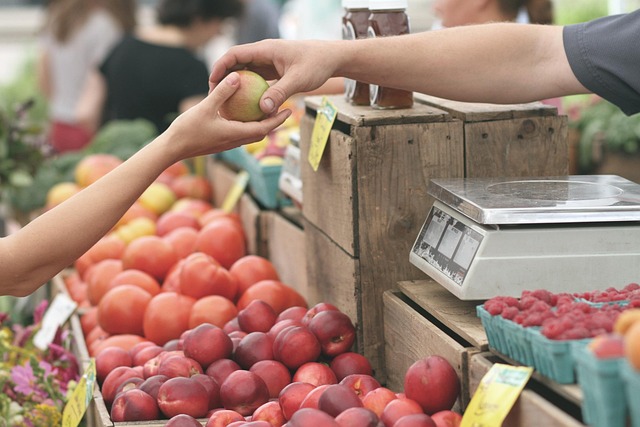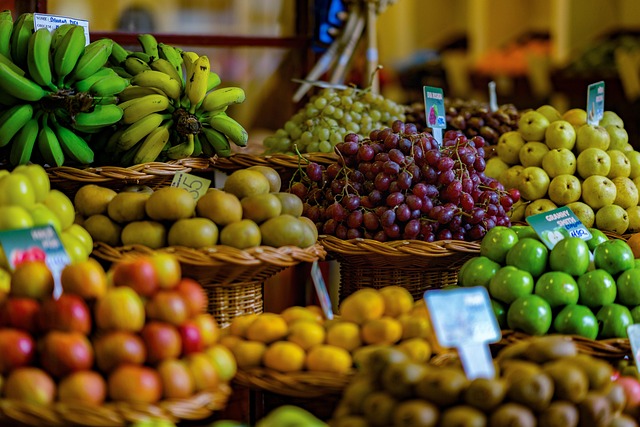Food allergies and intolerances impact daily lives but are manageable through understanding. Allergies involve an overreaction to food proteins, while intolerance stems from digesting issues. Local food delivery and meal prep services play a crucial role by offering specialized menus free of common allergens, using separate cooking areas, and providing accurate ingredient info. These initiatives promote inclusivity, ensuring individuals with allergies and intolerances can enjoy meals without compromising health. In the digital era, local food delivery apps cater to dietary needs through specialized preparation, fostering inclusive dining environments. Both local deliveries and home/specialized meal prep employ safety protocols, dedicated spaces, and mindful practices to prevent cross-contamination, enabling secure enjoyment of tailored meals.
In today’s diverse culinary landscape, catering to various dietary needs is more important than ever. This article explores food allergies and intolerance, offering insights into how businesses and individuals can create inclusive dining experiences. We delve into understanding these conditions, focusing on local food delivery services that cater to specific requirements. Additionally, we discuss meal preparation techniques to ensure safe and delicious options for those with allergies, emphasizing the role of local delivery and skilled meal prep in accommodating diverse dietary needs.
- Understanding Food Allergies and Intolerance
- Local Food Delivery Services for Accommodations
- Meal Preparation Techniques to Avoid Risks
Understanding Food Allergies and Intolerance

Food allergies and intolerance can significantly impact an individual’s daily life, but understanding these conditions is a crucial step in accommodating them. A food allergy involves an overreaction of the immune system to specific proteins found in food, leading to various symptoms, from mild discomfort to severe, life-threatening reactions. On the other hand, food intolerance refers to difficulty digesting certain foods due to lack of enzymes or sensitivity to particular substances. Unlike allergies, intolerance doesn’t involve the immune system and typically causes gastrointestinal issues.
Local food delivery and meal preparation services play a vital role in catering to these needs. These services offer specialized menus free from common allergens and use separate cooking areas to prevent cross-contamination. They also ensure that customers receive accurate information about ingredients, enabling them to make informed choices. Whether it’s through tailored meal plans or quick deliveries, such initiatives foster inclusivity, allowing those with allergies and intolerance to enjoy meals without compromising their health and well-being.
Local Food Delivery Services for Accommodations

In today’s digital era, local food delivery services have revolutionized the way we access meals tailored to our dietary needs. These platforms offer a convenient solution for individuals with food allergies or intolerances by providing a diverse range of options prepared fresh and delivered directly to their doorsteps. Many of these services specialize in meal preparation, ensuring that every dish is crafted with care to accommodate specific dietary restrictions.
By utilizing local food delivery apps, folks can easily discover and support restaurants and caterers committed to fostering an inclusive dining environment. Whether it’s a case of gluten intolerance or a more complex allergy, these services empower users to enjoy delicious meals without the hassle of special ordering or worrying about cross-contamination.
Meal Preparation Techniques to Avoid Risks

When it comes to catering to food allergies and intolerance, both local food delivery services and meal preparation techniques play a pivotal role in ensuring safe and delicious meals. For local delivery services, clear communication is key. Restaurants and chefs must be knowledgeable about common allergens and have protocols in place to prevent cross-contamination during preparation. This includes using separate equipment for allergen-free dishes, cleaning surfaces thoroughly, and educating staff on handling food safely.
Meal preparation at home or through specialized services requires a mindful approach. Individuals should create dedicated spaces and tools for preparing allergen-free meals, preventing any accidental exposure. Techniques such as thorough washing of utensils and cutting boards, using separate containers for different ingredients, and double-checking ingredient labels can significantly reduce risks. Customized meal plans that accommodate specific dietary needs are also gaining popularity, offering a convenient and safe solution for those managing food allergies.
In addressing food allergies and intolerance, a combination of understanding, accessible services, and careful meal preparation is key. By utilizing local food delivery services that cater to these needs, individuals can enjoy meals without compromising their health. Additionally, adopting effective meal preparation techniques ensures safety and peace of mind. Embracing these strategies enables everyone, regardless of dietary restrictions, to navigate dining experiences with confidence and ease.
